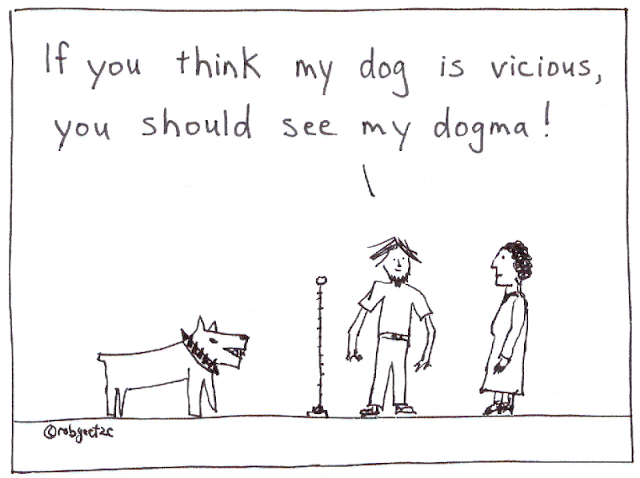Our dogma – what we believe about God and faith – is important. Yet depending on how we believe it and how we prioritize it vis-à-vis our relationships, our dogma can also be violent. Think of religious wars, church splits, conservative Christian parents rejecting their gay teenagers....
Miroslav Volf writes the following:
"...This brings us to the second implication of the encounter between Jesus, Caiaphas, and Pilate ...: the self of the other matters more than my truth. Though I must be ready to deny myself for the sake of the truth, I may not sacrifice the other at the altar of my truth. Jesus, who claimed to be the Truth, refused to use violence to “persuade” those who did not recognize his truth. The kingdom of truth he came to proclaim was the kingdom of freedom and therefore cannot rest on pillars of violence. Commitment to nonviolence must accompany commitment to truth otherwise commitment to truth will generate violence." (Exclusion and Embrace, p. 272. Emphasis added.)
From my perspective as well, relationships trump dogma. That doesn't mean I have to give up my beliefs; it does mean that I don't force them on others, I don't judge their faith or actions by their compliance (or not) to my dogma. I hold my dogma loosely. I believe in
brutal unity.
How about you? Have you seen or experienced the effects of people holding their dogma tightly and valuing it above their relationships?
In
Brian's words,
Is it so important to be right that alienation is an acceptable price?



